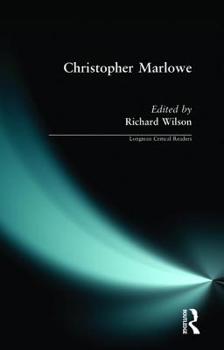Christopher Marlowe
Select Format
Select Condition 
Book Overview
Christopher Marlowe has provoked some of the most radical criticism of recent years. There is an elective affinity, it seems, between this pre-modern dramatist and the post-modern critics whose best work has been inspired by his plays. The reason suggested by this collection of essays is that Marlowe shares the post-modern preoccupation with the language of power - and the power of language itself. As Richard Wilson shows in his introduction, it is...
Format:Paperback
Language:English
ISBN:0582237076
ISBN13:9780582237070
Release Date:February 1999
Publisher:Routledge
Length:286 Pages
Weight:0.70 lbs.
Dimensions:0.6" x 5.5" x 8.5"
Customer Reviews
0 rating





